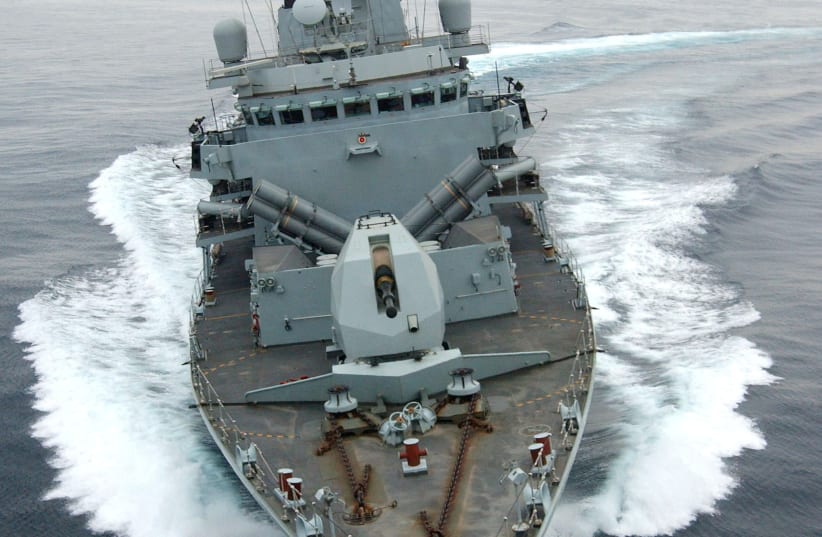The commander, William King, said that during 27 days of patrolling the entrance to the Gulf, he had 85 "interactions with Iranian forces" which often led to "an exchange of warnings" over radio.
"That gives you some idea of the intensity... (it) is perhaps more than we've seen of recent times," said King to BBC Radio. "The Iranians seem to be keen to test our resolve, test our reactions most of the time."
Sometimes the Iranians claim that the British presence is illegitimate, "even though we're completely lawfully in international waters," said King. "They may also run boats in at speed towards us, to test what warning levels we get to."
King pointed out that although tensions are escalating, Iran has remained "professional" and "cordial" in the Gulf.
"There's a healthy understanding, shall I say a respect between mariners, which now seems to be established," said King.
Earlier this month, the British-flagged Stena Impero tanker was seized by Iranian Revolutionary Guard forces while passing through the Strait of Hormuz. The UK claimed that the tanker was passing through Omani territorial waters according to international law at the time, while Iran claimed the tanker had collided with an Iranian fishing boat whose distress call it ignored.
The Royal Navy’s HMS Montrose attempted to come to the tanker’s aid and warned the Iranians by radio that their actions were illegal, but it “was unable to reach the scene in time,” as it did not receive “the notice of passage requested that would have allowed her to reach the scene more quickly.”
“Under international law Iran had no right to obstruct the ship’s passage, let alone board her,” said Hunt. “It was therefore an act of state piracy which the House will have no hesitation in condemning.”
A video of the tanker seizure, published by the semi-official Tasnim news agency, contains footage of the capture of the tanker, showing Iranian Revolutionary Guards abseiling onto the deck from a helicopter, with the audio recording superimposed.
"You are required not to interfere in these issues," the IRGC navy representative says.
"This is British warship foxtrot two three six," a voice with a British accent replies. "I am in the vicinity of an internationally recognized strait with a merchant vessel in my vicinity conducting transit passage."
"Don't put your life in danger," the IRGC representative says.
The video also contains an exchange between the IRGC and the same British warship during a stand-off in mid-July involving the British Heritage oil tanker, according to Tasnim.
Three Iranian vessels attempted to block the passage of a ship, the British Heritage, through the Strait of Hormuz, but withdrew after warnings from a British warship, the British government said on July 11.
Last week, then UK Foreign Secretary Jeremy Hunt announced that the UK would try and form a European-led maritime mission to secure traffic in the Gulf region. Hunt emphasized that the mission would be focused on “free navigation,” and would not be part of the “US maximum pressure policy on Iran,” as Britain is still committed to preserving the nuclear deal with Iran.
The then foreign secretary also advised British-flagged ships to avoid all passage in Iranian waters and, “for the moment,” in the entire Strait of Hormuz.
Britain last week started sending a warship to accompany all British-flagged vessels through the Strait of Hormuz, a change in policy announced on Thursday after the government previously said it did not have resources to do so.
Reuters contributed to this report.
